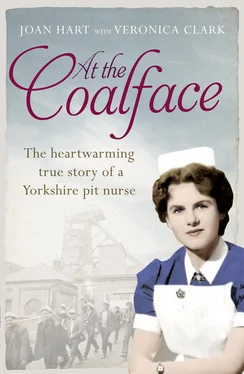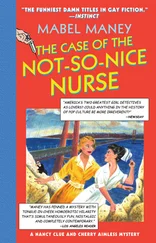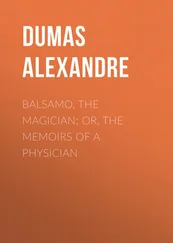Besides, how hard could cooking actually be? I pondered.
But cooking was a lot harder than I thought and, after cremating several family meals, a kindly neighbour called Lizzie Adams took me under her wing. By then, I’d decided I would take care of everything. Just because our mother had failed us, it didn’t mean I would. Lizzie was a wily woman in her sixties, but to a girl my age she seemed absolutely ancient. However, what she didn’t know about cooking wasn’t worth knowing, and I became her willing pupil. Cooking, cleaning and looking after four people was no mean feat, and soon I’d missed days, weeks, even months, of school. But I was smart, and I knew I’d just have to work twice as hard to catch up. In the meantime, Lizzie and I spent hours in the kitchen where she taught me how to bake bread and boil vegetables so that they didn’t disintegrate as soon as I drained the pan. She also showed me how to cook a tasty roast all the way through, checking the juices ran clear, so that I didn’t poison anyone. Of course, my father was delighted to come home to a piping hot meal and three happy, clean children, but he also felt guilty because he hated the idea of me missing school.
‘We can’t carry on like this, Joan,’ he said, placing his knife and fork down firmly on the table. ‘You need to go back to school so you can learn and do well in life. You can’t stay here looking after us all; I won’t allow it. Not any more.’
Dad was right, of course, but the thing was, after a year of playing housemaid, I quite liked the idea of caring for others. I’d enjoyed making sure the little ones got to school on time with a bellyful of food and clean faces and hands. I’d hated the housework, but the satisfaction I felt when everything was neat, proper and in its place made it all worthwhile. In short, I knew it was what I wanted to do with the rest of my life.
‘I want to be a nurse,’ I told the St John cadet leader, a lovely woman called Mrs Hargreaves, later that evening. ‘How do I go about it?’
She explained that at 14 years old I was much too young to be anything other than a child but, when the time was right, she’d make enquiries on my behalf.
In the meantime I tried to be the best cadet I could, and thankfully I discovered I had a natural talent for first aid.
With me back at school, Dad employed a husband-and-wife team – Harry and Emily – as live-in housekeepers. But the house was already too small and cramped, so Dad and Tony were forced to share a room. We were told we should call them Auntie Emily and Uncle Harry, even though we weren’t related. Harry was an invalid. He suffered from pneumoconiosis, a restrictive lung disease commonly seen in miners, so the prospect of a regular wage and a roof over their heads appealed to Emily, who made it clear from the beginning that she had ‘designs’ on my father. Our ‘aunt and uncle’ soon made themselves at home, to the point where, as children, we were barely allowed to sit down in case we made the place look untidy. In some ways it was nice to live in a spotlessly clean house and be back at school, but I hated being told off for putting my feet up on the sofa. Emily wasn’t only house-proud, she could also be very cruel. One day, she was cross because I’d moved something and put it back in the wrong place. Dad was out at work so she knew she could speak her mind.
‘Your mother’s run off with another man. She didn’t love you. That’s why I’m here, because someone has to look after you!’ Emily hissed spitefully as she narrowed her eyes.
From that moment on I resented Emily with her tidy ways and vicious tongue. But she wasn’t the only one who said things about my mother – other people gossiped too. In fact, so many rumours circulated around the village that they soon took on a life of their own, until, just by word of mouth, fiction became fact even if there wasn’t an ounce of truth in it. I hated the other children when they said horrible things about her. Despite my own disappointment, I’d always stuck up for Mum and defended her honour. However, Ann had been a baby when Mum had left so she never, ever forgave her.
Seeing an absent mother and with her eyes on my father, Emily decided to step into the role, and she did, with aplomb. Instead of Mum, it’d be Emily at our school plays, dolled up to the nines. Emily was so sweet on Dad that I was convinced she was just waiting in the wings, ready to pounce once her husband had passed away. It was a thoroughly depressing situation.
The house was cramped not only with two extra people, but also because Harry and Emily had brought along their own furniture, most of it so much nicer than ours. To free up some space, Dad had decided to cut down our old kitchen table and use it as a bench inside his greenhouse, which he’d filled with chrysanthemums and tomato plants. He was so green-fingered he could turn his hand to anything. There were two Anderson air-raid shelters in the back lane, behind the row of terraced houses, but no one used them because there was a much safer and deeper one in the village park. With no takers, Dad saw his chance and filled the shelters with beds of manure and grew crops of mushrooms inside them. Even if anyone had wanted to use the shelters, they wouldn’t because the smell was so pungent that, on a hot day, it carried all the way down the street. Mind you, the shelters were so exposed that they were eventually bombed, so I reckon my father’s mushrooms saved a few lives along the way.
One day, quite without warning, Emily and Harry decided to leave. I never found out why, but I think the fact that Dad never acted on or picked up on Emily’s many romantic hints was probably the final straw. He was miffed because he knew he’d have to find another housekeeper, but secretly I was relieved that we would have the place back to ourselves again. By this time, I was 15 years old and adept at making a mean Sunday dinner. A few days after Emily had left, taking her last pieces of furniture with her, something struck me – we had no kitchen table. I wasn’t quite sure what to do, but then I remembered the one in the greenhouse. I knew it was a big job, but with Dad due home within the hour and the meat almost cooked in the stove, I needed everything to be perfect. I wanted him to think I could cope. Opening up the greenhouse door, I scratched my head as I contemplated the task in hand. The table was wide and heavy, and I wondered how I’d manage to get it down the garden – never mind how I’d lift it into the kitchen.
Blimey, it’s heavier than it looks , I cursed silently as I dragged it along. If only Emily hadn’t taken her posh furniture with her, then we wouldn’t be in this position.
It took a bit of brute force but somehow I managed to push the table inside the house. But then I was faced with another problem – it had no legs because Dad had sawn them off to fit it inside the greenhouse! The smell of roast beef filled the kitchen, making my mouth water. I had to think of something – fast. I nipped out into the backyard to look for something suitable to prop it up with. I stumbled upon a load of old house bricks. I collected as many as I could carry, stacked them on top of one another, and lowered the table top down onto them. It was hardly up to Emily’s high standards – I could just imagine her shaking her head in despair – but at least it was a table once more. Moments later I heard the back door slam. We always used the back door – the front was reserved for funerals and weddings only – so I knew it was Dad. His footsteps sounded heavy as he came inside.
‘Wash your hands and sit down. I’ve cooked you a lovely dinner,’ I said as I loaded up some meat and vegetables onto a plate.
‘Lovely. I’m starving!’ he said as he grinned and wandered over to wash his hands at the kitchen sink. As he turned his head, he did a double take.
Читать дальше












